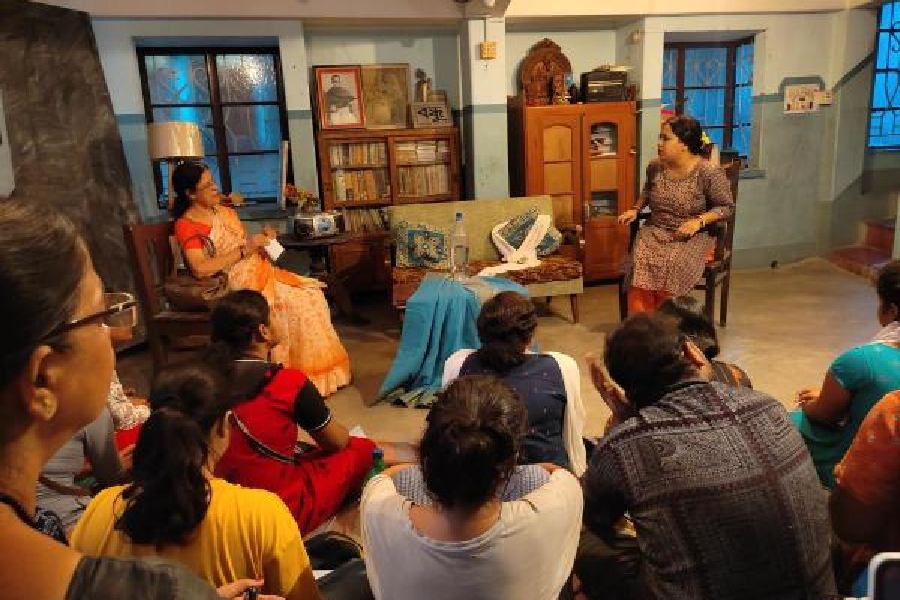Din e Dupur e is a solo performance created and performed by Munia Debleena in residential neighbourhoods and in intimate and informal spaces like people’s drawing rooms and courtyards. This piece, laced with humour and wit, makes strong jibes against systemic patriarchy with light-footed ease. Rekha, a 41-year-old, runs her one-woman business of selling sarees to sustain her family — husband and two kids. She comes to visit one of her regular customers to sell sarees, but ends up telling a story about how a demi-god appeared at her doorstep on an ordinary day to stop her from doing extraordinary things and to tame her into being the right fit for her family and society at large.
Debleena effortlessly plays both characters while building a complex dynamic of co-option and contradiction between the demi-god and Rekha in the course of their conversation. She sets up her space for speaking her own word, decorates it, celebrates it, and claims it through her performing body. Debleena, in collaboration with the dramaturge, Titas Dutta, evokes an intimate feminine space by revealing that the truth of one’s story lies in the plunge that a performer takes while sharing it, in the intimate acts of transfer rather than in aspiring for the superficial standards of a distilled production. The audience is implicated in the story, which brings to the surface questions around where lies the boundaries beyond which women are condemned of transgression; In the private moments when they desire? When their desires burst conservative patriarchy? When they are resolute and unswerving in saying their own word? When their roars threaten notions of middle-class sophistication? A barrage of nuanced questions makes this performance resonate across class, gender and cultural contexts. The story ends; it begins where it ends. Rekha doesn’t sell a single saree. Or maybe her sarees, panchali (Hindu religious texts read by women), a popular Bollywood song celebrating the joys of a woman, all come together to tell her story.










